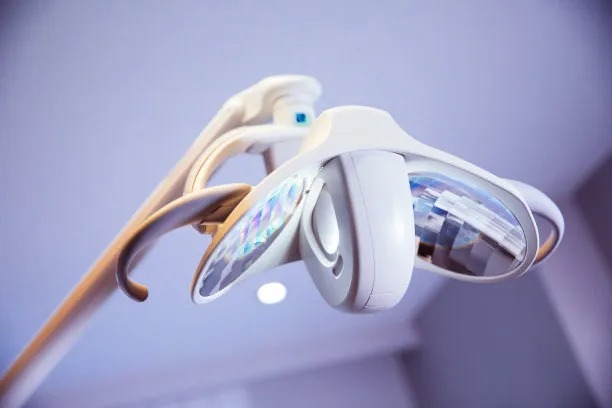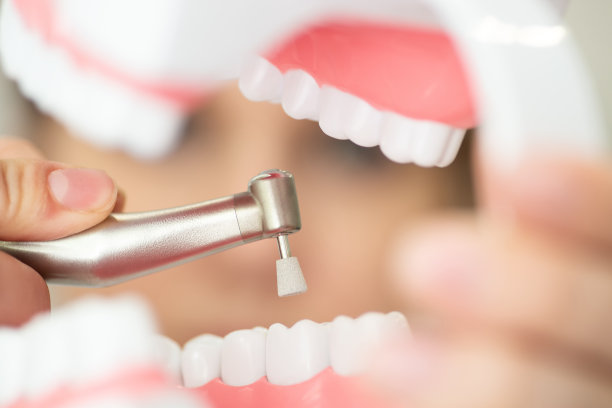Summary: Dental fillings are a common solution for restoring teeth affected by decay or damage. However, ensuring their effectiveness and longevity requires careful attention to post-treatment care. This article outlines essential precautions to optimize dental filling outcomes, focusing on four key areas: maintaining oral hygiene, adhering to dietary recommendations, scheduling regular check-ups, and understanding filling materials. Each precaution is detailed to provide comprehensive guidance for patients to protect their dental health and prolong the life of their fillings.
1. Maintaining Thorough Oral Hygiene Practices

After receiving a dental filling, maintaining oral hygiene becomes crucial. Brushing twice daily with a fluoride toothpaste helps in keeping the filled area clean, preventing bacteria build-up and further decay. Its important to brush gently around the filling to avoid dislodging it while still ensuring effective plaque removal.
Flossing is equally essential for filling longevity. It allows you to reach areas between teeth that a toothbrush cant effectively clean. Using waxed dental floss can minimize the risk of pulling at the filling material, helping maintain its integrity over time.
Additionally, using an antimicrobial mouthwash can further enhance oral hygiene. Rinsing with a mouthwash containing fluoride not only helps in eliminating harmful bacteria but also aids in strengthening the remaining tooth structure, thus supporting the longevity of your fillings.
2. Adhering to Dietary Recommendations
Your diet plays a significant role in the effectiveness and lifespan of dental fillings. After the procedure, it鈥檚 advisable to avoid hard, sticky, or chewy foods for at least 24 hours. This precaution allows the filling to set properly and reduces the risk of dislodging it.
Furthermore, maintaining a balanced diet rich in vitamins and minerals can promote oral health. Foods high in calcium and vitamin D strengthen bones and teeth, while limiting sugary snacks and beverages decreases the risk of dental cavities around the filled area.
After a filling, be mindful of the temperature of food and drinks as well. Extremely hot or cold items may cause sensitivity in the filled tooth. Gradually introducing your regular diet while taking these precautions can help ensure your dental filling remains effective.
3. Scheduling Regular Dental Check-ups
Regular dental check-ups are essential for maintaining the health of your fillings. Dentists can monitor the condition of your filling and surrounding teeth during routine visits, identifying potential problems early on. Aim for check-ups at least every six months, or as recommended by your dentist.
During these visits, your dental professional may perform cleanings that help remove plaque and tartar, ensuring your fillings remain stable. They can also provide personalized advice based on your oral health and habits, which can further extend the life of your dental treatments.
Moreover, if you experience any discomfort or unusual sensations in the filled tooth, schedule an appointment promptly. Addressing issues early can prevent more extensive repairs and help preserve your filling.
4. Understanding Your Filling Materials
Different types of filling materials have varying lifespans and care requirements. Understanding the specific material used for your filling鈥攚hether amalgam, composite, or gold鈥攃an inform your maintenance routine. Each material reacts differently under pressure and with food, which can influence how you care for it.
For example, composite fillings may require more care than amalgams, as they can be more susceptible to staining. Regular check-ups can help monitor the aesthetic qualities of these fillings, allowing for treatment adjustments if necessary.
In addition, familiarize yourself with the limitations of your fillings. Being aware of how certain foods and habits may affect your filling can empower you to make better choices. Knowledge about your filling materials ultimately equips you to protect your investment in dental health.
Summary:
To ensure the optimal outcome and longevity of dental fillings, maintaining rigorous oral hygiene, adhering to dietary guidelines, scheduling regular check-ups, and understanding the materials used are essential precautions. Each of these aspects contributes to maximizing the durability and effectiveness of your dental treatments.
This article is compiled by Vickong Dental and the content is for reference only.
Vickong Dental
Vickong Dental is a large medical group established in Hong Kong in 2008 by professors from well-known medical universities in Guangdong and Hong Kong, as well as medical doctors from key national '985' universities (including Master's supervisors and senior professors). The chain of branches brings together expert dentists with PhDs and Master's degrees from Hong Kong and Mainland China, committed to providing high-quality dental treatment.
"Vickong Dental Practices the University Motto of 'Healing and Serving Society,' with a Stable Operation for Sixteen Years. It Has Been honored with Hong Kong Enterprise Leaders's Choice,' and is a Global Trusted Implant Center for the Nobel Implant System. Recommended by Hong Kong Metro Broadcast and Guangdong Television, it Serves Customers from Over Thirty Countries and Regions, Gaining the Trust and Favor of Citizens from the Guangdong-Hong Kong-Macau Greater Bay Area and Surrounding Cities.

Thousands of customers' unanimous praise
The most recognized and highly recommended dental service by customers in the Guangdong-Hong Kong-Macau Greater Bay Area
We Ensure You Receive Detailed Care and Attention Here
Hong Kong standards, Shenzhen prices, Your Trusted English-speaking dentists

Vickong Dental Medical-Grade Instrument Disinfection Process
Vickong Dental Medical-Grade Instrument Disinfection Process

Vickong Dental Chain: A Warm and Comfortable Environment for Treatment






Appointment Hours

Q&A
Why choose Vickong Dental?
Vickong Dental practices the university motto 「Medicine to Benefit Society」, with each branch bringing together highly qualified dentists with doctoral and master’s degrees from Hong Kong and the Mainland, and has maintained seventeen years of steady operation。Recipient of 「2024 Hong Kong Enterprise Leaders Brand」, 「2025 Hong Kong Enterprise Leaders Brand」, a Nobel Biocare Global Trusted Implant Center, and a brand recommended by Metro Radio Hong Kong and Guangdong TV。
To date, we have served customers from more than thirty countries and regions,earning exceptionally high word-of-mouth recognition and trusted recommendations from residents across the Guangdong-Hong Kong-Macao Greater Bay Area and surrounding cities
We have eight major branches in Zhuhai、Shenzhen,and a consultation and service assurance center in Hong Kong,so you can book a free consultation at any time for any questions,which is very reassuring.
If I do not accept the quotation after the CT scan, will I be charged??
No! As long as the actual treatment has not started, you will not be charged any fees.
Will there be any additional charges during the treatment process?
No, there won’t be any additional charges. Before treatment begins, we will clearly explain the treatment plan and its corresponding fees. Only after the patient agrees and signs the consent form will we proceed with the dental service.
Can I pay in Hong Kong dollars?
Yes. Vickong Dental accepts payment in Hong Kong dollars. The amount will be converted based on the exchange rate of the day, and the applicable rate will be clearly communicated to you in advance.
Can I reschedule my appointment at any time?
Yes. Please contact us via **WeChat** or **WhatsApp** as early as possible, providing your original appointment time and details, along with your preferred new date and time slot for rescheduling.













